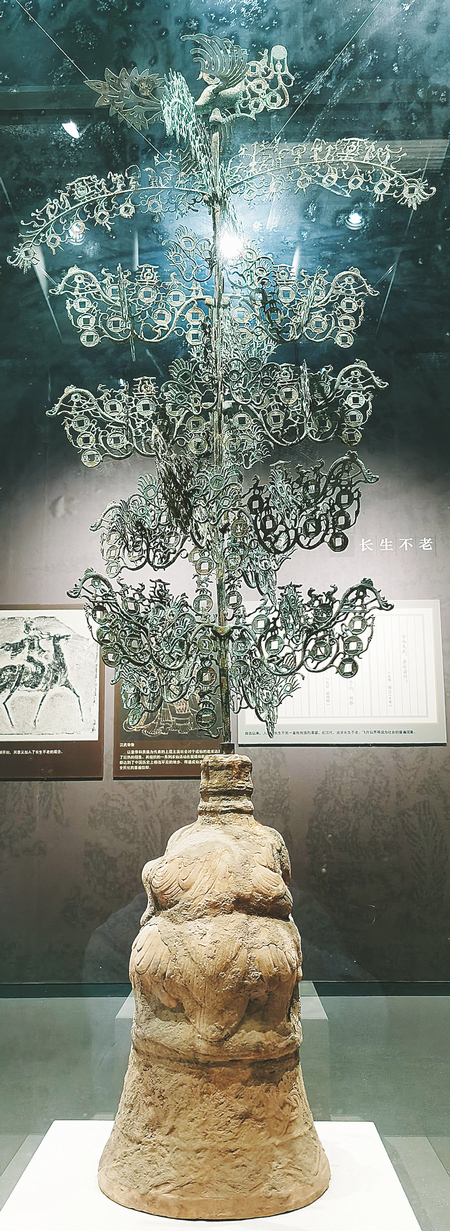

Since then many gold, silver, bronze and iron items have been uncovered.
Xia Haichao, an information officer with the Pengshan district committee of the Communist Party of China, says two tons of silver ingots had been excavated.
Many artifacts, including Zhang's gold seal, are directly related to the Daxi Kingdom he founded after the Ming Dynasty collapsed, providing evidence that the Jiangkou section of the Minjiang River was where Zhang's fleet was attacked in 1646.
Also in Jiangkou is Pengzu Mountain, resplendent with peach, pear, rapeseed, purple magnolia and wild blossoms in spring.
The mountain is the final resting place of Peng Zu who, legend has it, lived for 136 years (more than 816 years according to the ancient Chinese calendar, which regarded 60 days as a year), making the site a magnet for visitors who hold traditional beliefs about longevity.
The Pengshan native lived during the Shang Dynasty (c. 16th century-11th century BC), says Su Dan, a guide.
Peng, considered China's originator of health preservation, created four longevity and health preservation therapies, namely recuperating, qigong (breathing exercise), dietetic and sexual therapies. The mountain is a symbol of Chinese longevity culture and a holy land for health preservation.